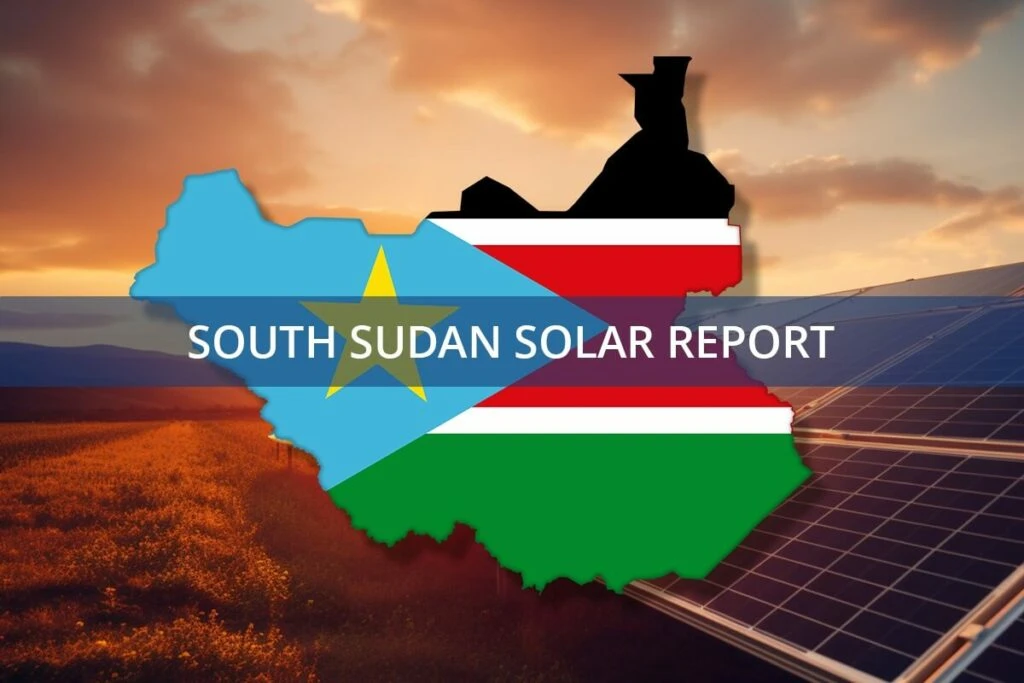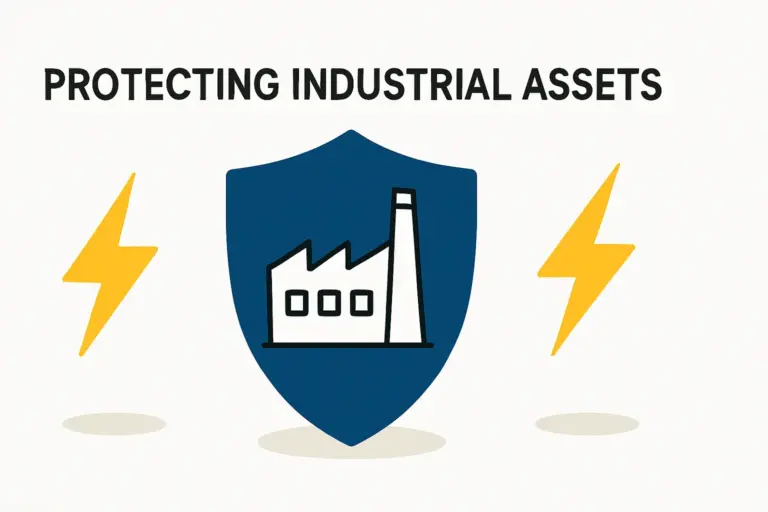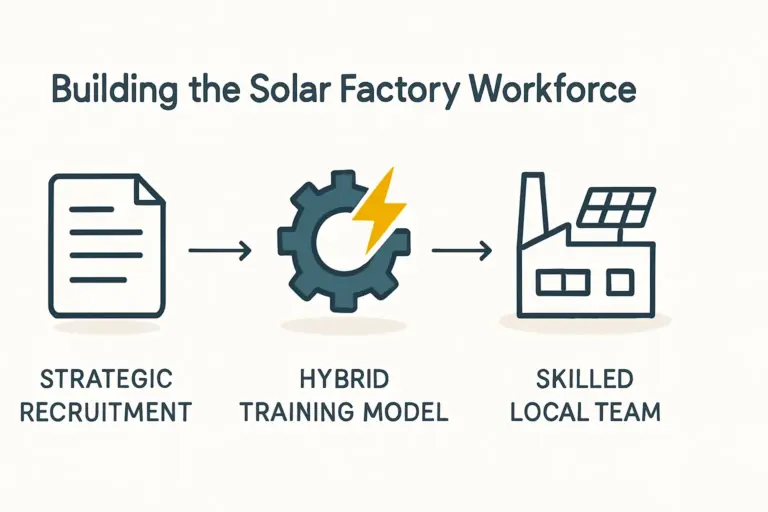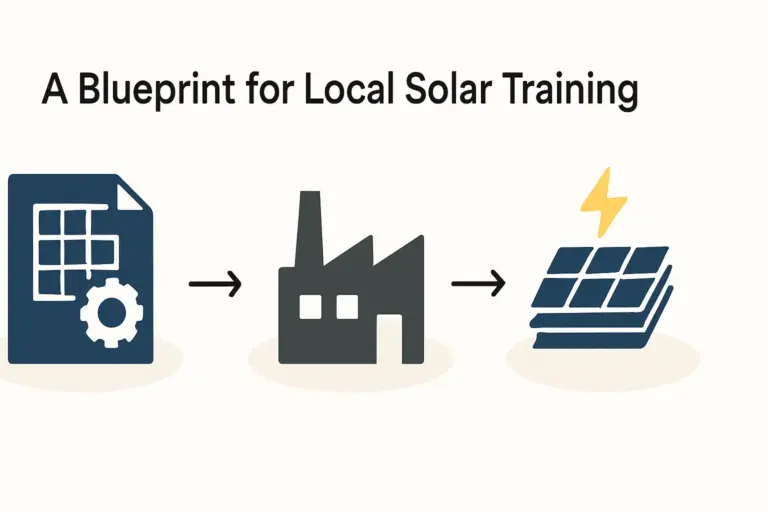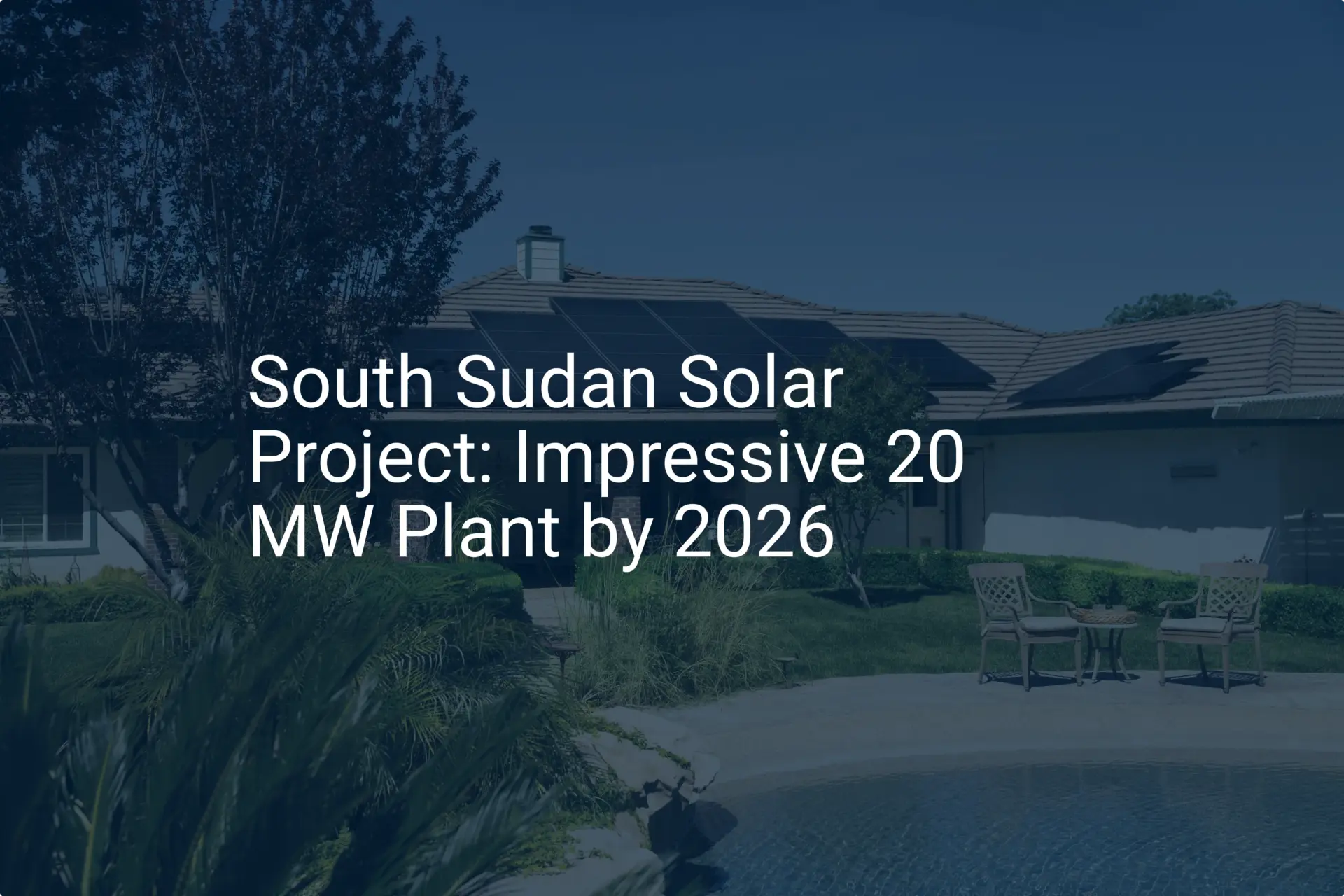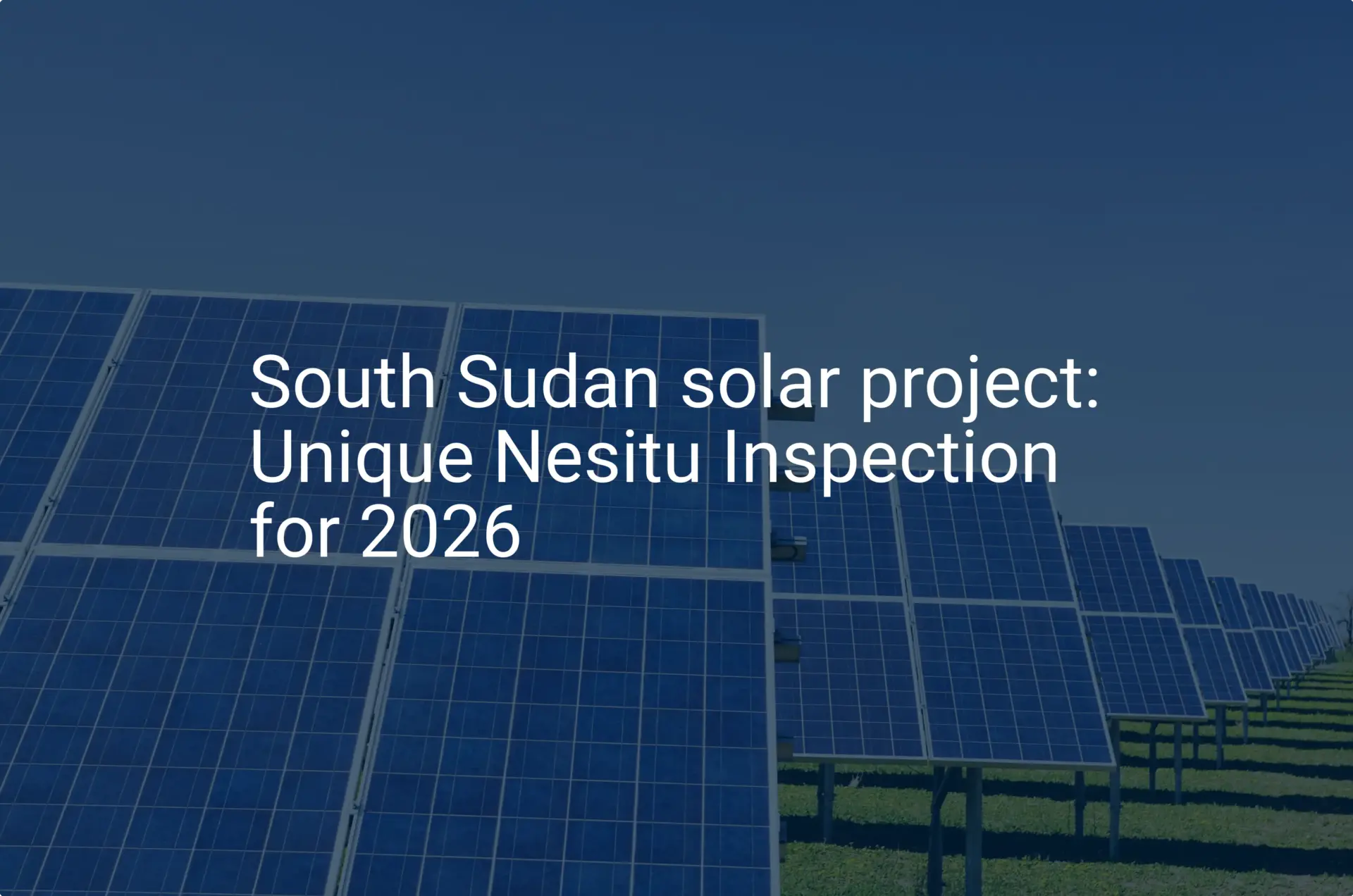Disclaimer: This case study represents a composite example derived from real-world
consulting work by J.v.G. Technology GmbH in solar module production and factory optimization. All data points are realistic but simplified for clarity and educational purposes.
The most compelling business opportunities often arise at the intersection of a pressing national need and a viable technological solution. In Sudan, such an opportunity is crystallizing across its vast, fertile lands. The nation has an estimated 84 million hectares of arable land, yet only 15–20% is currently cultivated. A primary barrier to unlocking this immense potential is the high cost and unreliability of energy for water irrigation—a fundamental component of agricultural productivity.
This article outlines the business case for establishing local solar module manufacturing in Sudan, focusing specifically on the agricultural sector, a critical engine for the country’s economic development and food security. This analysis shows how a local production facility can solve core energy access challenges while building a sustainable and profitable enterprise.
The Sudanese Agricultural Paradox: Immense Potential Constrained by Energy Costs
Sudan’s agricultural potential is undeniable. Its climate and land resources are suitable for a wide range of crops, offering a pathway to self-sufficiency and a robust export market. However, realizing this potential depends heavily on consistent and affordable water irrigation.
Currently, the agricultural sector relies on over 100,000 diesel-powered water pumps. This dependence creates several significant business and operational challenges:
- High Operational Costs: With diesel prices averaging around $0.95 per liter, fuel is a major, recurring expense for farmers, directly impacting their profitability.
- Price Volatility and Scarcity: Global oil markets and local supply chain disruptions cause unpredictable fuel prices and frequent shortages, making it difficult for agricultural businesses to plan and operate consistently.
- Maintenance and Logistics: Diesel engines require regular maintenance and a complex logistical network to deliver fuel to remote rural areas.
Together, these factors create a major obstacle to the expansion and modernization of Sudanese agriculture. Businesses are forced to allocate significant capital to operational energy costs instead of investing in growth.
The Strategic Solution: Localizing Solar Manufacturing for a National Priority
The solution lies in harnessing Sudan’s most abundant natural resource: sunlight. With solar irradiation levels ranging from 2,400 to 3,200 kWh/m² annually, the country is one of the most favorable locations in the world for solar energy. Shifting from diesel to solar-powered irrigation offers a clear path to lower operational costs, energy independence, and long-term stability for farmers.
While importing solar modules is an option, establishing local solar module manufacturing is a more strategic and economically advantageous approach. A local factory addresses several key market needs:
- Cost Reduction: Local production can reduce import duties and transportation costs, making the final product more affordable for customers.
- Supply Chain Control: A domestic facility ensures a stable supply of modules, insulating the market from international shipping delays and supply chain volatility.
- Product Customization: Modules can be designed and built specifically for the demanding local climate—a critical factor for long-term performance and reliability.
- Economic Contribution: Local manufacturing creates skilled jobs, fosters technical expertise, and strengthens the nation’s industrial base.
Recognizing this potential, the Sudanese government fosters a positive investment climate with supportive policies, including tax exemptions and reduced duties on imported raw materials for the solar industry.
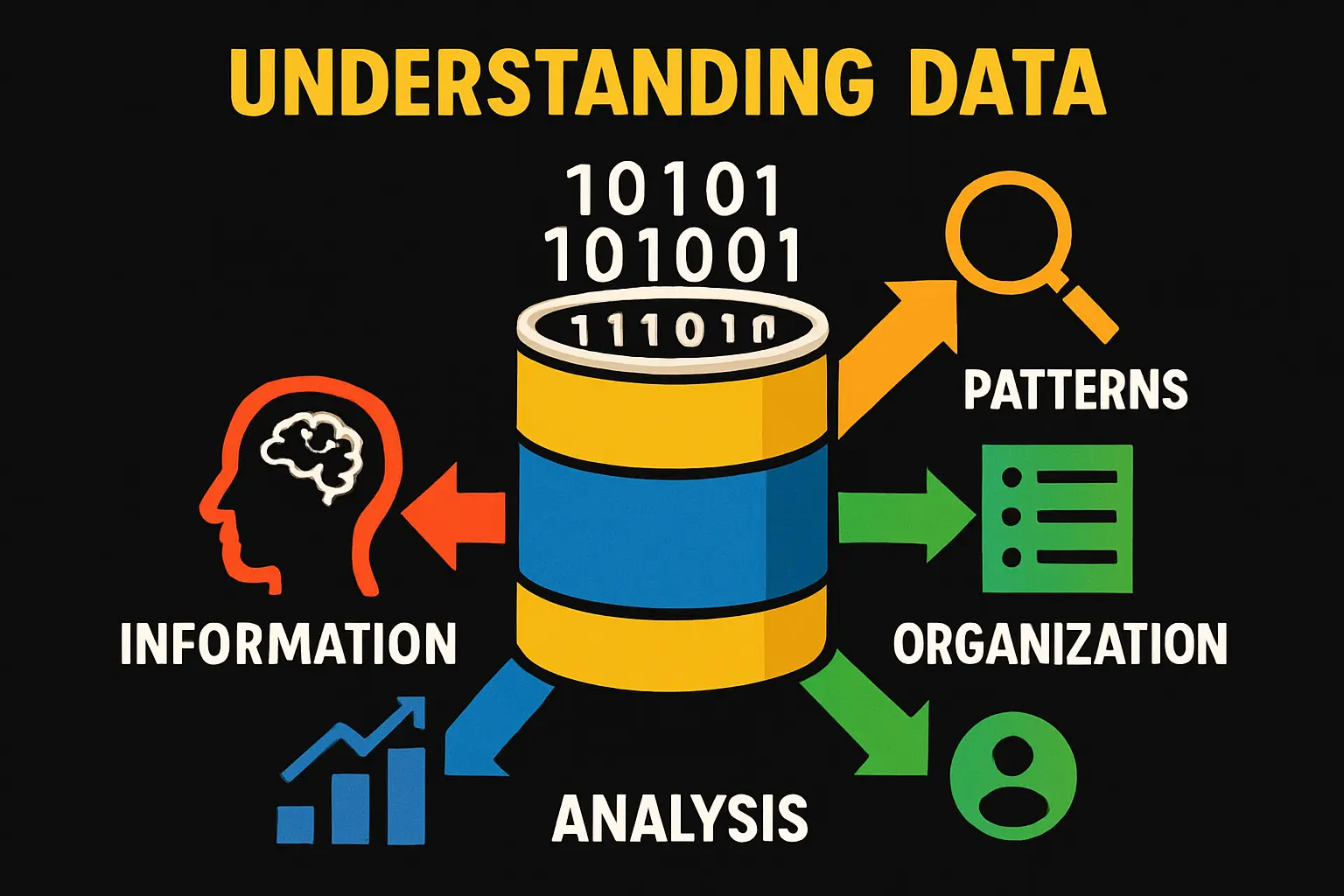
Designing Modules for Demanding Environments: The DESERT+ Advantage
Not all solar modules are suited for the extreme conditions found in many parts of Sudan. High ambient temperatures, dust, and abrasive sandstorms can significantly degrade the performance and lifespan of standard panels. For critical applications like off-grid water pumps, where reliability is paramount, a more robust product is essential.
This is where specialized module designs are essential. For instance, DESERT+ solar modules are engineered specifically for such environments. They feature highly durable glass, reinforced frames, and advanced cell technologies that maintain high efficiency even at elevated temperatures. Manufacturing these purpose-built modules locally ensures that the agricultural sector receives a product that delivers a reliable return on investment over its 25-30 year lifespan.
Analyzing the Financial and Operational Framework
For an entrepreneur considering this market, understanding the scale and requirements of a production facility is crucial. A small-to-medium-sized factory with an annual capacity of 20–50 MW is often an ideal starting point. This scale is large enough to achieve economies of scale yet nimble enough to meet the market’s initial growth.
The investment requirements for a facility of this size cover machinery, building preparations, raw material sourcing, and operational training. Based on experience gained from European PV manufacturers’ turnkey projects, an entrepreneur need not be a photovoltaic expert to succeed. A complete, turnkey solar module production line offers a structured path, from factory layout planning to staff training and initial production supervision. This model allows business professionals to focus on management and strategy, backed by proven technical processes.
A 20 MW line can typically be operated by a workforce of fewer than 30 employees, making it a manageable enterprise for a new entrant in the industrial sector. The output of such a factory could power thousands of irrigation systems annually, directly boosting agricultural productivity across the region.
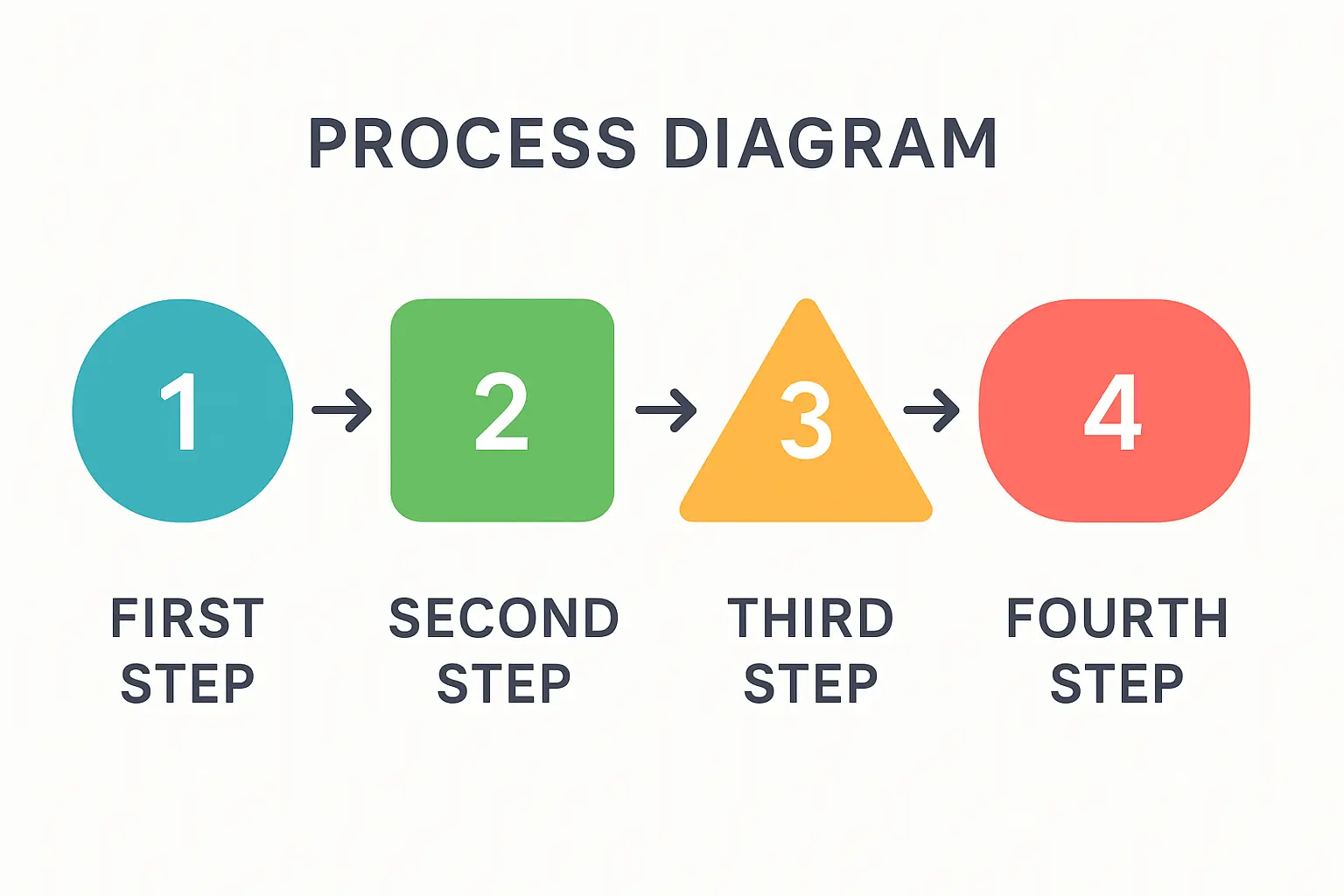
Frequently Asked Questions (FAQ) for Investors
What is the typical return on investment for a solar pump system compared to a diesel one?
A solar water pump requires a higher initial investment but has significantly lower operational expenses. By eliminating fuel costs and reducing maintenance, the return on investment is typically achieved within 2 to 5 years. Over the modules’ 25+ year lifespan, the long-term savings are substantial.
Why is local manufacturing better than simply importing modules?
Local manufacturing offers several strategic advantages. It helps avoid import tariffs on finished goods, reduces logistical costs and complexities, creates local employment, and allows for the production of modules specifically engineered for Sudan’s climate. It also provides greater control over the supply chain—a key competitive advantage.
What level of technical expertise is required to start a solar module factory?
While a general understanding of manufacturing is beneficial, deep expertise in photovoltaic technology is not a prerequisite. Established European industrial solutions providers offer the complete production process, machinery, training, and initial supervision. This allows the business owner to focus on commercial operations, knowing the technical foundation is sound.
How do government incentives in Sudan support this type of investment?
The Sudanese government actively encourages investment in renewable energy. Incentives often include exemptions from business profit tax for several years, reduced customs duties on imported raw materials and machinery, and assistance with land allocation for industrial projects. These measures significantly improve the financial viability of a local manufacturing plant.

Conclusion: From Concept to a Thriving Local Industry
The case for establishing local solar module manufacturing in Sudan is compelling, supported by strong market demand, abundant resources, and clear economic logic. By replacing costly and unreliable diesel-powered irrigation with locally produced, climate-resilient solar solutions, entrepreneurs can build a profitable business that directly supports one of the nation’s most critical sectors.
This venture is not merely about producing solar panels; it is about providing a foundational technology that can unlock Sudan’s vast agricultural potential, enhance food security, and drive sustainable economic growth. For business leaders seeking a project with both financial returns and significant national impact, this is a clear and actionable opportunity. The next step for interested parties is to conduct a detailed feasibility study and explore the specific technical and financial parameters of a modern production facility.
Download: Local Solar Module Manufacturing Case Study [PDF]
Author: This case study was prepared by the
turnkey solar module production specialists at J.V.G. Technology GmbH
It is based on real data and consulting experience from J.v.G. projects
worldwide, including installations ranging from 20 MW to 500 MW capacity.

